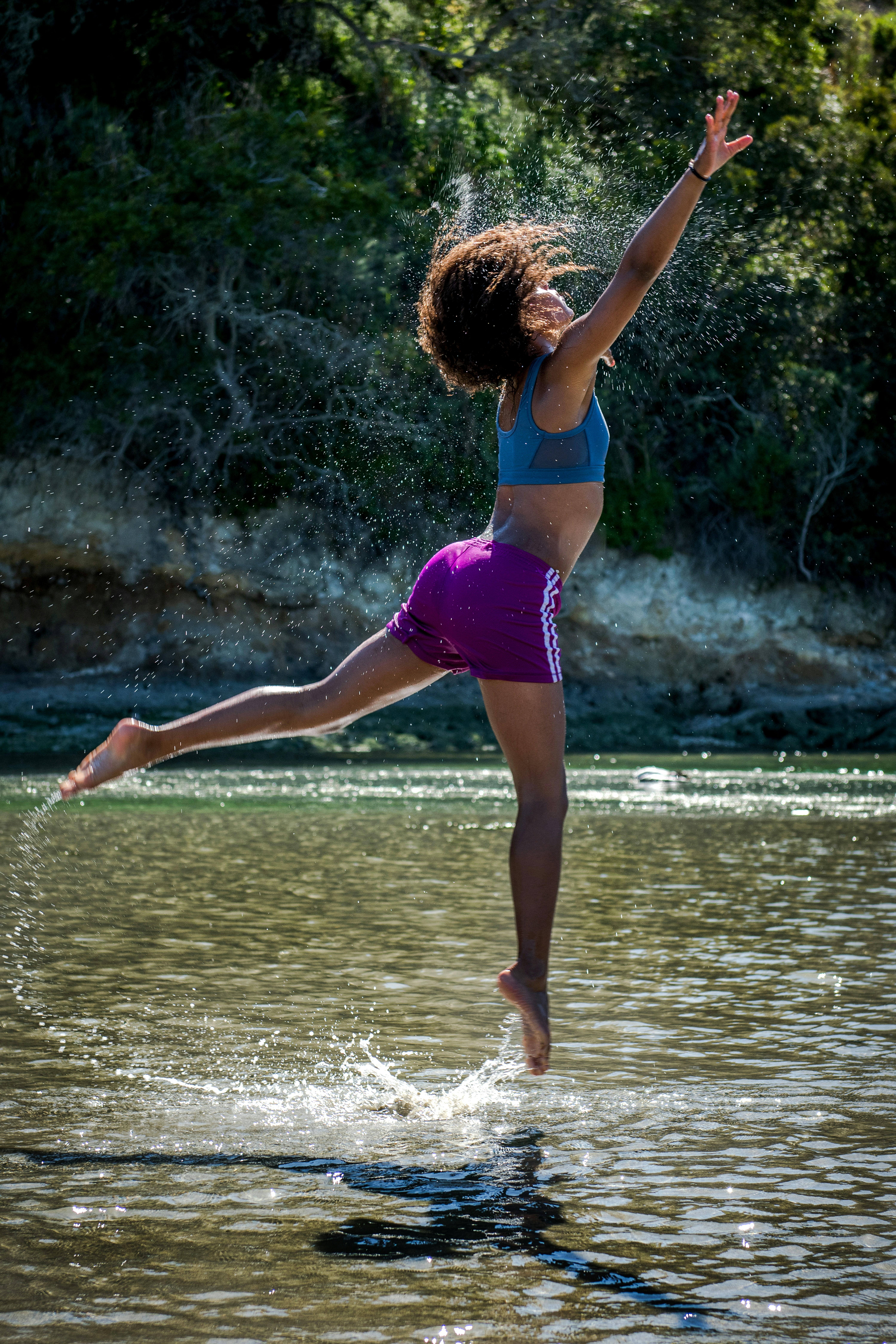Unlocking the Power of Mindfulness in Athletic Performance
In the world of sports, where physical prowess often seems to reign supreme, the importance of mental acuity sometimes gets overshadowed. Yet, there’s a growing recognition that the mind is just as crucial—if not more so—than the body. Enter mindfulness, a concept that has transcended its Eastern roots to become a vital tool in the arsenal of athletes across disciplines. But what exactly does it mean to be mindful, and how can it unlock unparalleled performance on the field, court, or track?
The Essence of Mindfulness: A Quick Overview
Mindfulness is essentially the practice of being present in the moment, fully aware of one’s thoughts, feelings, and surroundings without judgment. Think of it as a mental training program that can be tailored to suit the specific needs of an athlete. It’s about focusing on the here and now, which can dramatically enhance concentration and performance. Honestly, it’s a bit like realizing that you’ve been eating your lunch too quickly. You stop, breathe, and actually taste your sandwich. Sounds simple, right? Yet, in the whirlwind of competitive sports, simplicity often gets lost.
Why Mindfulness Matters in Sports
At the crux of athletic performance lies pressure—pressure to perform, pressure to win, and pressure to live up to expectations. This pressure can lead to anxiety, which, let’s face it, is the archenemy of peak performance. Studies suggest that athletes who practice mindfulness are better equipped to handle stress, which translates to improved focus and resilience during competitions. I remember watching a tennis match where one player completely transformed after beginning to practice mindfulness. The shift was palpable; he went from being a bundle of nerves to a focused powerhouse. It was as if a light bulb had gone on.
Scientific Backing: The Research
Research into mindfulness and its effects on athletic performance has exploded in recent years. A substantial number of studies have found that mindfulness training can lead to measurable improvements in various aspects of athletic performance. For instance:
- Enhanced Focus: Mindfulness can help athletes maintain concentration amidst the chaos of competition.
- Reduced Anxiety: Regular practice can lead to lower levels of performance anxiety, allowing athletes to compete with a clearer head.
- Better Recovery: Mindfulness techniques can aid in physical recovery by promoting relaxation and reducing muscle tension.
One particularly compelling study published in the Journal of Sports Psychology found that athletes who engaged in mindfulness meditation showed improved performance in both individual and team sports. They were able to enter a state of “flow” more readily—an elusive state where everything clicks and the athlete performs at their best. I’ve often wondered if that’s what the pros mean when they talk about being “in the zone.”
Mindfulness Practices for Athletes
So, how does one cultivate mindfulness? It doesn’t require sitting in a lotus position for hours on end—unless that’s your thing! Plenty of practical techniques can be seamlessly integrated into an athlete’s training regimen.
1. Breathing Exercises
Breathing may seem mundane, but it’s a powerful tool for grounding oneself. Athletes can benefit from dedicating just a few minutes before practice or competition to focus on their breath. A simple technique involves inhaling deeply for a count of four, holding for four, and exhaling for a count of six. Repeat this until you feel more centered. (Trust me, it helps—especially when you’re about to face a formidable opponent.)
2. Body Scanning
This technique involves mentally scanning your body from head to toe, paying attention to any sensations, tension, or discomfort. It’s akin to a quick check-up, helping athletes become more aware of their physical state. Regular body scans can lead to improved body awareness, which is crucial for optimizing performance and preventing injuries.
3. Visualization Techniques
Visualization, or mental imagery, is a powerful aspect of mindfulness that many elite athletes already use. The idea is to imagine oneself performing successfully in a given situation—whether it’s nailing a free throw or crossing the finish line first. This practice not only helps with focus but also boosts confidence. I can’t help but think of Michael Phelps, who famously visualized his races before stepping into the pool.
4. Mindful Movement
Incorporating mindfulness into physical training can be as simple as focusing on the sensations of movement while running or swimming. Instead of zoning out or letting the mind wander, athletes can concentrate on their breath, the rhythm of their strides, and even the feel of the ground beneath their feet. It’s a way of turning routine workouts into opportunities for mental sharpening.
Real-World Examples: Athletes Who Swear by Mindfulness
Mindfulness isn’t just a trend; it has been embraced by numerous athletes who attribute their success to these practices. Take the example of NBA star LeBron James. Known for his intense focus and mental fortitude, LeBron incorporates mindfulness into his daily routine, often discussing how meditation helps him maintain clarity during high-pressure moments. He’s not just dribbling a basketball; he’s orchestrating a symphony of thoughts, emotions, and actions.
Then there’s NFL quarterback Russell Wilson, who has spoken openly about his mindfulness practices, including visualization techniques and meditation. Wilson claims these methods have helped him stay calm in the face of adversity. If you’ve ever seen him lead a comeback, you might agree that there’s something to this mindfulness thing.
Even in less conventional sports, mindfulness is gaining traction. Take the world of professional surfing, where the ocean’s unpredictability requires immense focus and calmness. Surfer Kelly Slater often emphasizes the role of mindfulness in riding the waves. It’s about tuning into the moment and embracing the unpredictability—qualities that are just as vital in life as they are in sports.
Barriers to Mindfulness: The Athletic Mindset
Despite the clear benefits, many athletes face barriers when it comes to incorporating mindfulness into their routines. One major hurdle is the prevailing mindset that emphasizes toughness and grit. Some athletes may view mindfulness as a sign of weakness, wrongly equating it with a lack of competitiveness. (And let’s be real, who wants to admit they’re “soft”?)
Additionally, the fast-paced nature of professional sports can make it challenging to carve out time for mindfulness practices. Athletes often have packed schedules filled with training, competitions, and media obligations. However, it’s important to remember that even a few minutes of mindfulness can yield significant benefits. As they say, every little bit counts—much like those sneaky calories we all try to ignore!
Building a Mindful Culture in Sports
For mindfulness to truly take root in the athletic community, it requires a cultural shift. Coaches and training staff play a pivotal role in this transformation. By integrating mindfulness practices into team training sessions, they can help athletes understand the importance of mental well-being alongside physical prowess.
Consider the example of the University of Washington’s football program, where mindfulness has become an integral part of the team’s culture. Coaches emphasize not just physical training but also mental conditioning, creating an environment where athletes feel comfortable exploring mindfulness. This holistic approach has led to improved performance, camaraderie, and overall well-being among the players.
The Future of Mindfulness in Athletics
The future of mindfulness in sports looks promising. As more athletes and coaches recognize its benefits, we can expect to see an increased emphasis on mental training alongside physical conditioning. The rise of technology, including apps and online courses, has also made mindfulness practices more accessible than ever. Athletes can now practice mindfulness on their own terms, whether it’s during a quiet moment before a game or while commuting to training.
Imagine a world where athletes are just as focused on their mental game as they are on their physical performance. It’s not a far-off dream; it’s a reality that’s already unfolding. As the conversation around mental health continues to grow, mindfulness may very well become a staple in every athlete’s training regimen.
Conclusion: Mindfulness as a Game Changer
In conclusion, mindfulness is more than a buzzword; it’s a powerful tool that can unlock untapped potential in athletic performance. By fostering awareness, reducing anxiety, and enhancing focus, mindfulness can elevate athletes to new heights—both mentally and physically. It’s a journey that doesn’t require perfection but rather a commitment to being present and engaged in the process.
As we move forward, let’s embrace the idea that success in sports isn’t solely defined by physical ability. It’s about the harmony of mind and body, the resilience to tackle challenges, and the grace to enjoy every moment on and off the field. So, whether you’re a weekend warrior or an aspiring Olympian, why not take a moment to breathe, focus, and be present? You might just find that unlocking the power of mindfulness could be your secret weapon in the pursuit of greatness.




